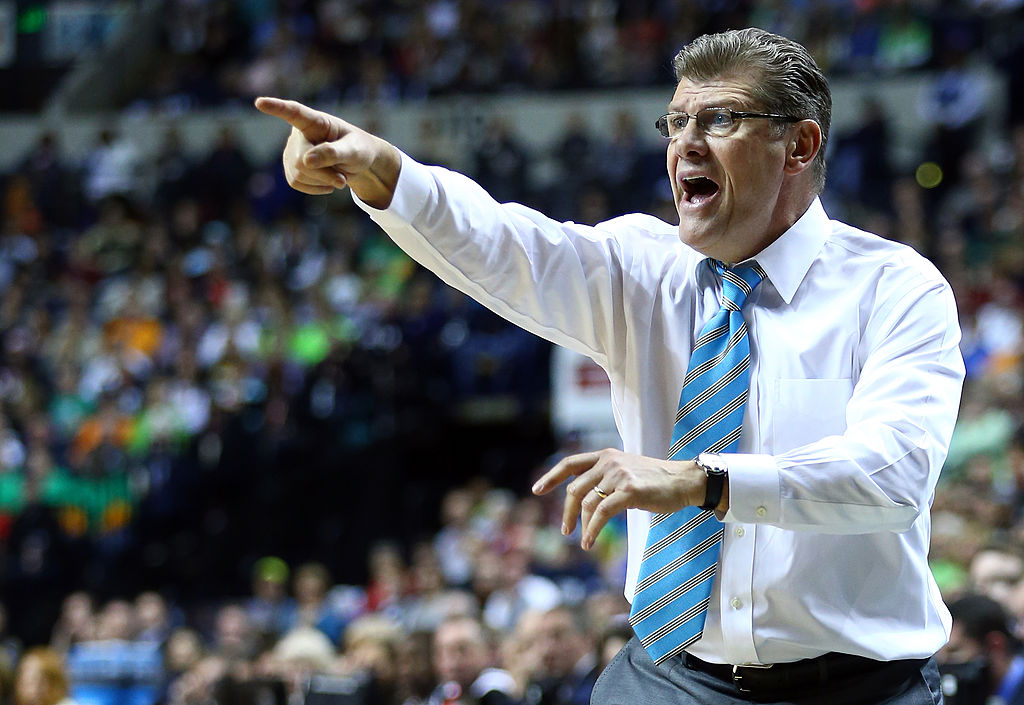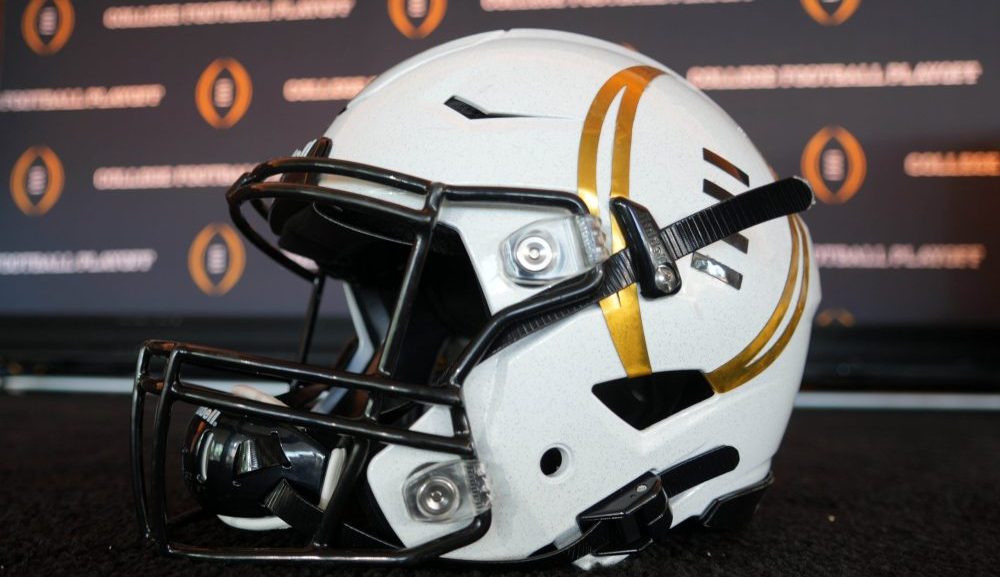In many sports, there’s often a wide divide between what broadcasters want and what players, coaches, fans and executives who want to emphasize in-person attendance want. The NCAA women’s basketball tournament is perhaps showing this most at the moment, as it’s seen plenty of changes over the last couple of decades to focus on one area or the other (with more still being contemplated), and UConn coach Geno Auriemma thinks the balance has swung too far to TV. However, one particular complaint he lodged about ESPN not wanting the Final Four on its current Friday-Sunday schedule directly contradicts the praise he had for that schedule 16 years ago. Here’s what Auriemma said Thursday:
Geno Auriemma had some pointed words today about ESPN's role re: the Women's Final Four schedule: pic.twitter.com/Au6yfHPfhq
— Richard Deitsch (@richarddeitsch) March 30, 2017
And here’s what he said in a 2001 Hartford Courant article about the tournament moving from Friday-Sunday to Saturday-Tuesday (it actually wound up moving to Sunday-Tuesday):
`I do know that our tournament has to change,” UConn coach Geno Auriemma had said earlier. “I don’t think we can play Friday-Sunday anymore. It just doesn’t work. There’s too much hype and hoopla surrounding the men’s tournament that I think our tournament gets lost.”
So, that’s quite a contrasting opinion. Auriemma isn’t wrong that ESPN probably would prefer to go back to the Sunday-Tuesday setup (Friday nights are generally bad for ratings), but it’s interesting that he feels so differently about the Sunday-Tuesday setup now. Of course, a lot has changed in 16 years, but this is still a significant change in his own perspective. For a bit of the history here, the Women’s Final Four was Friday-Sunday from its inception in 1982 through 1990 and again from 1996-2002 before moving to Saturday-Tuesday from 2003-2016. The NCAA made the call to move this back to Friday-Sunday in 2014 (with the decision coming into effect this year), and cited a desire to improve attendance, so that’s a move that was actually made in favor of the live experience rather than the televised one. Auriemma is correct that ESPN would likely want to get it back to Sunday-Tuesday, but whether they’ll be able to is up for debate, and it’s interesting that his own feelings on Friday-Sunday have shifted so much.
The latest
Auriemma’s complaint about “sitting around until 9:30” also isn’t quite fair; yes, their semifinal against Mississippi State is at 10 p.m. Eastern, but that’s only 9 p.m. local in Dallas, and it should be noted that it’s the second semifinal. The first one, South Carolina-Stanford, is set for 7:30 p.m. Eastern, which is far from ideal for TV on a weeknight (especially with a Pacific Coast team involved; that game starts at 4:30 for many Stanford fans). Auriemma’s team gets what’s probably a better TV slot (it’s tougher for UConn fans, but perhaps better from the national perspective) because they’re a bigger draw. And it’s hard to feel too bad for them about a 9 p.m. start. Are we really that worried that university student-athletes won’t be able to stay up past 11?
Auriemma is right that ESPN wants what’s best for their network. But he also wants what’s best for his school and his team; it’s not like he’s being totally altruistic here. And in terms of what’s actually best for women’s basketball overall, that isn’t necessarily always emphasizing the in-arena product; higher in-arena numbers can be nice, but so is reaching way more people on TV. It’s a balancing act, and it’s one that will continue to be contested. One issue where Auriemma might actually have more of a case came from last fall’s discussions about moving the women’s Final Four back a week to avoid overlap with the men’s tournament, which ESPN opposed because of Masters overlap; the NCAA eventually opted for the status quo after over 80 per cent of schools endorsed it. But it’s issues like that where something that matters to ESPN (Masters overlap) doesn’t necessarily matter to women’s basketball.
Overall, it seems odd that Auriemma is protesting so much. Yes, there’s a divide between what he wants and what ESPN wants, but that divide seems to be tipped in the favor of the in-arena experience at the moment, especially when it comes to the move to the Friday-Sunday format. Yes, his team has to play somewhat late in the evening, but that happens (and it actually wouldn’t happen in the semifinals if this was still Sunday-Tuesday). And yes, what’s best for TV isn’t necessarily best for in-arena fans, but there’s plenty being done to support the in-arena experience (including this shift to Friday-Sunday), and the TV viewers matter for the growth of the sport as well. In the end, he can complain about ESPN all he wants, but there isn’t a lot of evidence that the tournament is catering to them any more than they should.
Correction: this post initially had the tournament shifting to Saturday-Tuesday in 2003. That was what was proposed, but they wound up going with Sunday-Tuesday instead.)
[Richard Deitsch on Twitter]







